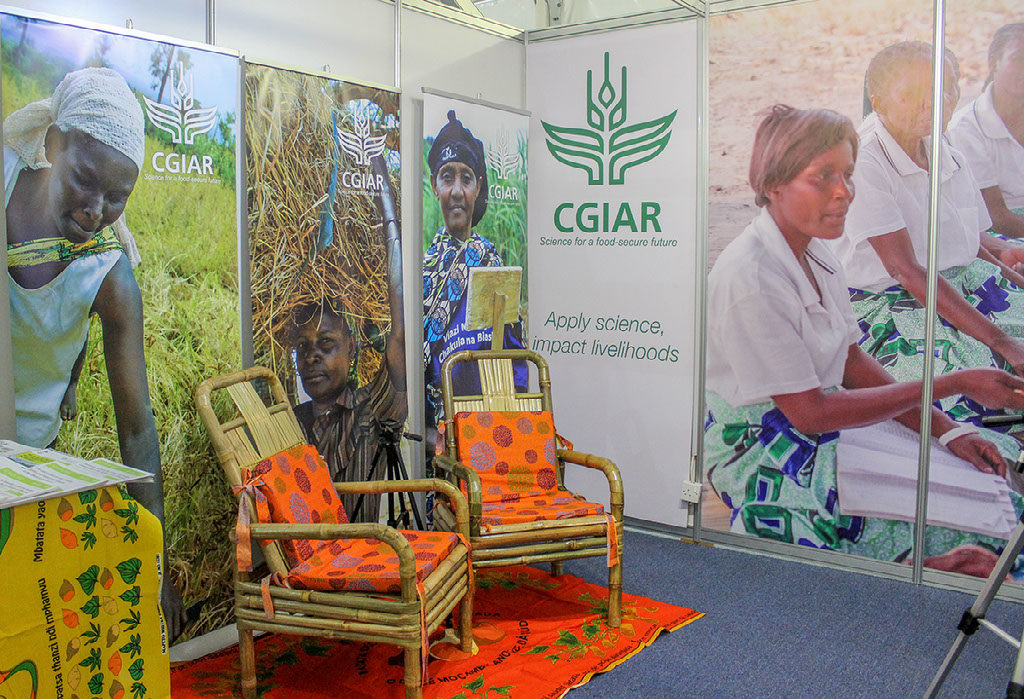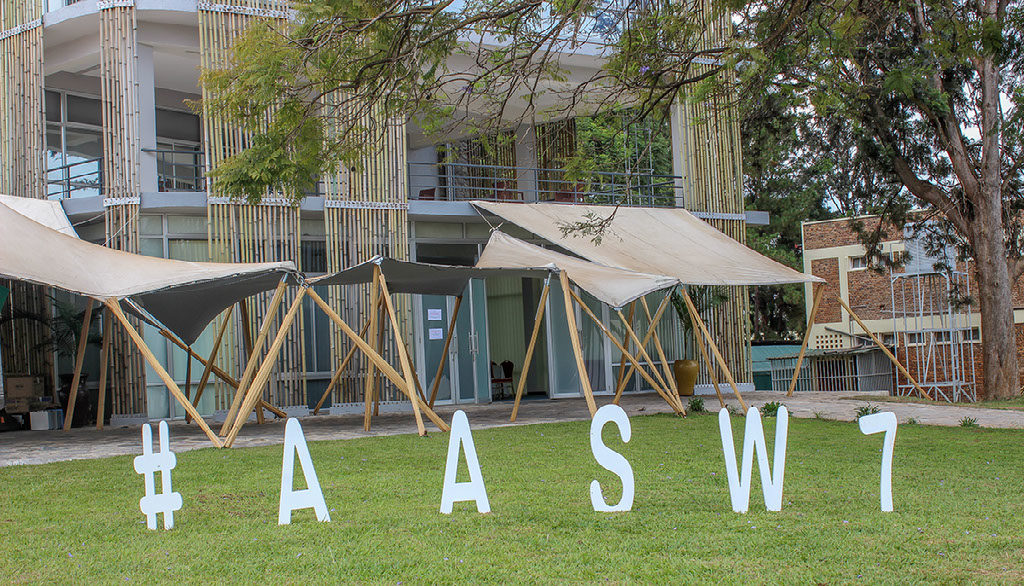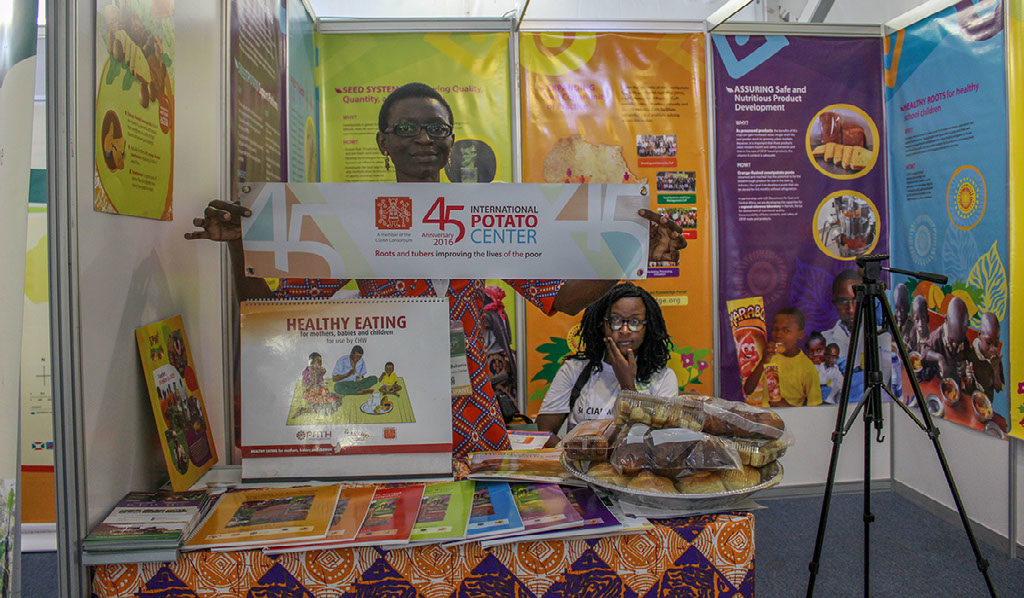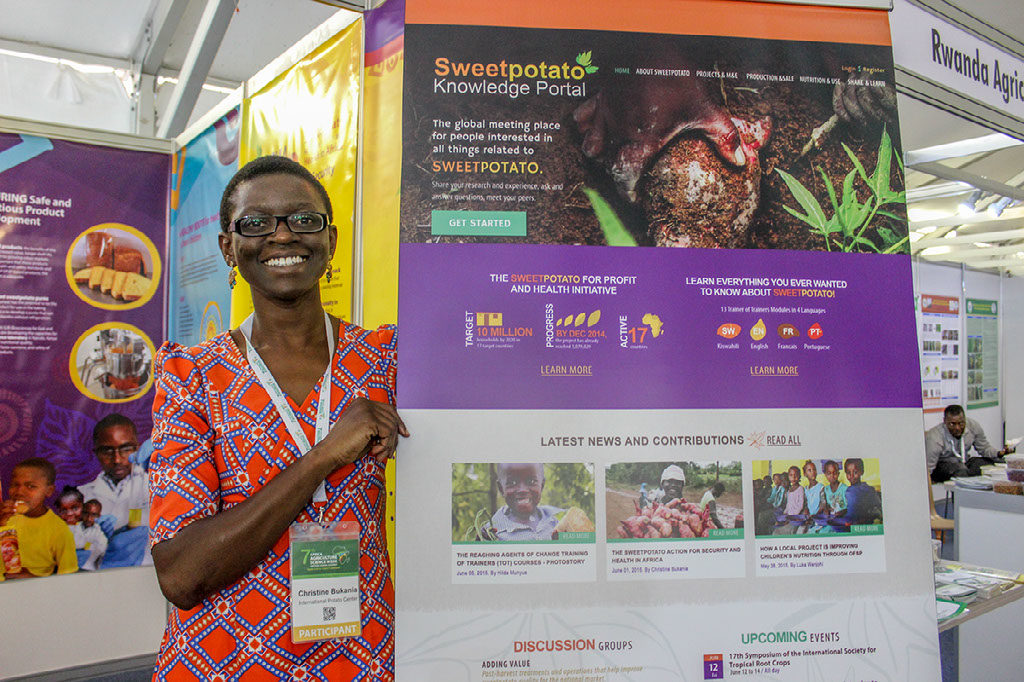“Apply Science, Impact Livelihoods” was the theme of this year’s 7th Africa Agriculture Science Week (AASW) which was held in Kigali, Rwanda from the 13-16 June. The event, hosted by the Forum for Agricultural Research in Africa (FARA) brought together over 600 people to discuss issues concerning agricultural science, technology and innovation in Africa and globally.
The AASW and the FARA General Assembly which was held at the same time are the principal forums for stakeholders to come together to discuss issues relating to agricultural science, technology and innovation in Africa. Members of the Consultative Group for International Agricultural Research (CGIAR), including the International Potato Center (CIP), joined forces with researchers, policy makers and farmer representatives among others to find and share solutions to some of the most pressing challenges the continent faces. The event was an opportunity to share achievements, opportunities and challenges in agriculture and to harness the power of science to tackle common goals.
The AASW event program was organized around 5 key sub-themes: Institutional systems and policies for making science work for African agriculture; Sustainable productivity growth, value chains and profitable agribusinesses; Human capital development and the Youth; Sustainable financing of Science, Technology and Innovation for African agriculture and Megatrends in African Agriculture





